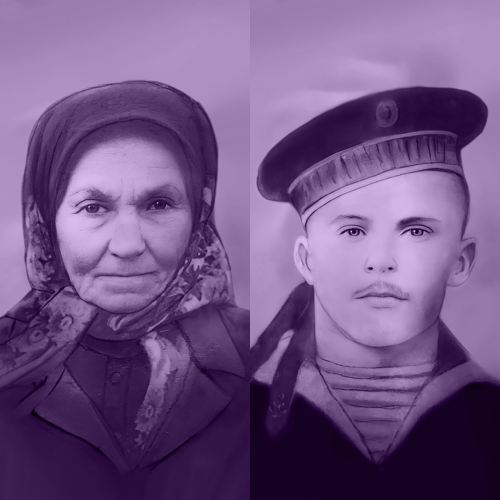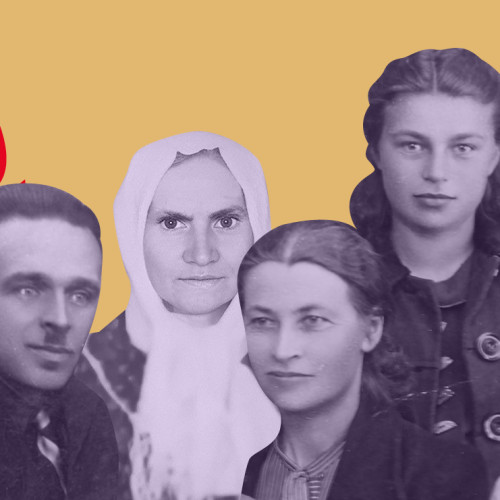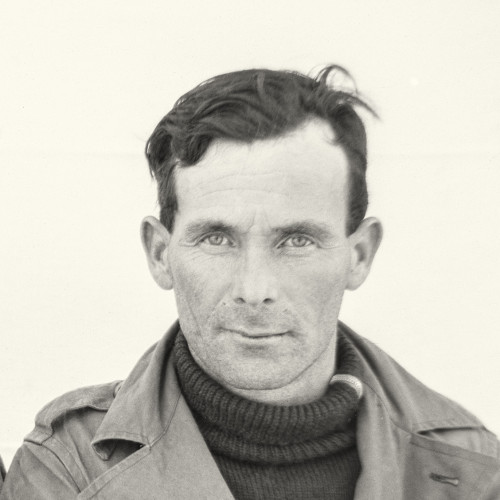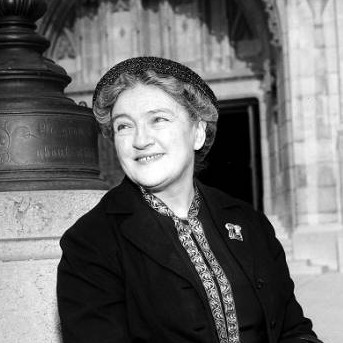Sawa Kowtoniuk (1888–ok. 1970) Ustyna Kowtoniuk (1895–ok. 1980) - Instytut Pileckiego
Sawa Kowtoniuk (1888–ok. 1970) Ustyna Kowtoniuk (1895–ok. 1980)
Awarded in 2023.

The Kovtoniuks gave shelter to several families: the Sławińskis, Romanowskis, Maciaszeks, and the Okólskis.
Shortly before the First World War, Sava Kovtoniuk began his obligatory
military service in the Imperial Russian Navy. After his discharge, he settled
down and married Ustyna, with whom he found a home in the western part
of Kisielin. The Ukrainian couple had two children – Volodymyr and Olha.
But their family life was soon disturbed by the outbreak of yet another war.
On Sunday, 11 July 1943, members of the Ukrainian Insurgent Army (faction
of the Organization of Ukrainian Nationalists) attacked the Poles gathered at
the church in Kisielin, killing approximately 90 people. This was not the end
of the pogrom, however, as other Poles were also targeted. The Kovtoniuks
gave shelter to several families: the Sławińskis, Romanowskis, Maciaszeks,
and the Okólskis. Feeding such a large group turned out be very challenging,
but Ustyna and her husband managed to prepare meals for all of the peo-
ple hiding on their farm. On 15 July, when the risk of running into Ukrainian
nationalists fell (as they were carrying out attacks in other villages), Sava led
part of the group to a safe place: “From the southern edge of the forest we
could see Lipiński’s farm in Zaturce, where we were headed. German soldiers
were stationed on his estate. Indeed, in order to save our lives, we had to
seek help from another enemy. That’s where we said our final goodbyes –
as it later turned out,” recalled Stanisława Sławińska. The rest of the Poles
remained at the Kovtoniuks’ farm until 8 August. Sava also helped Romana
Jurkowska – together they unearthed the body of her father from amakeshift
grave and moved it to the cemetery.
Having provided aid to Poles, the Kovtoniuks risked being killed by the
Banderites, so Sava volunteered for forced labor in Germany. After the war,
he lived for some time in Poland, but eventually returned to his home village,
where he worked as a postman. He died around 1970. His wife lived to be
reunited with the Sławiński family, who visited Kisielin in 1975.
“When the Ukrainian Insurgent Army stopped patrolling the area, we didn’t know they were murdering people in Woronczyn, Aleksandrówka and Adamówka [now Voronchyn, Oleksandrivka and Adamivka]. In the afternoon, Sava Kovtoniuk, who was hiding us in his barn and among the grain, grabbed a scythe, put it on his back, and went into the field and meadow. He jumped across the channelized Stochód River [now Stokhid River] and disappeared in the forest. He returned an hour later and said: ‘Idemo. Mozhna... [Let’s go. All clear...].”
Account of Stanisława Sławińska [in:] Włodzimierz Sławosz Dębski, W kręgu kościoła kisielińskiego, czyli Wołyniacy z parafii Kisielin, Lublin 1994
See also
- Skakalska, Zinaida Samczuk z d. Skakalska Musij Skakalski, Hanna Skakalska, Hanna Skakalska, Zinaida Samczuk z d. Skakalska

awarded
Skakalska, Zinaida Samczuk z d. Skakalska Musij Skakalski, Hanna Skakalska, Hanna Skakalska, Zinaida Samczuk z d. Skakalska
„In 1939, the Russians came, so we expected to be deported to Siberia [...]. Amid all this misery, we received assistance from the Skakalskis – the family of Musiy Skakalski – who were Ukrainians".
- Alfred Iversen

awarded
Alfred Iversen
(1908–1987)A Norwegian citizen who helped Poles, prisoners of a German forced labor camp, escape to Sweden.
- Ecaterina Olimpia Caradja (1893–1993)

awarded
Ecaterina Olimpia Caradja (1893–1993)
“Kurier Polski” published in Bucharest on 3 December 1939 was full of alarming headlines: “The Soviet attack on Finland”, “Executions and deportations.” One of them gave people hope: “Under the care of Princess Caragea. Home for mothers and chilldren.”


